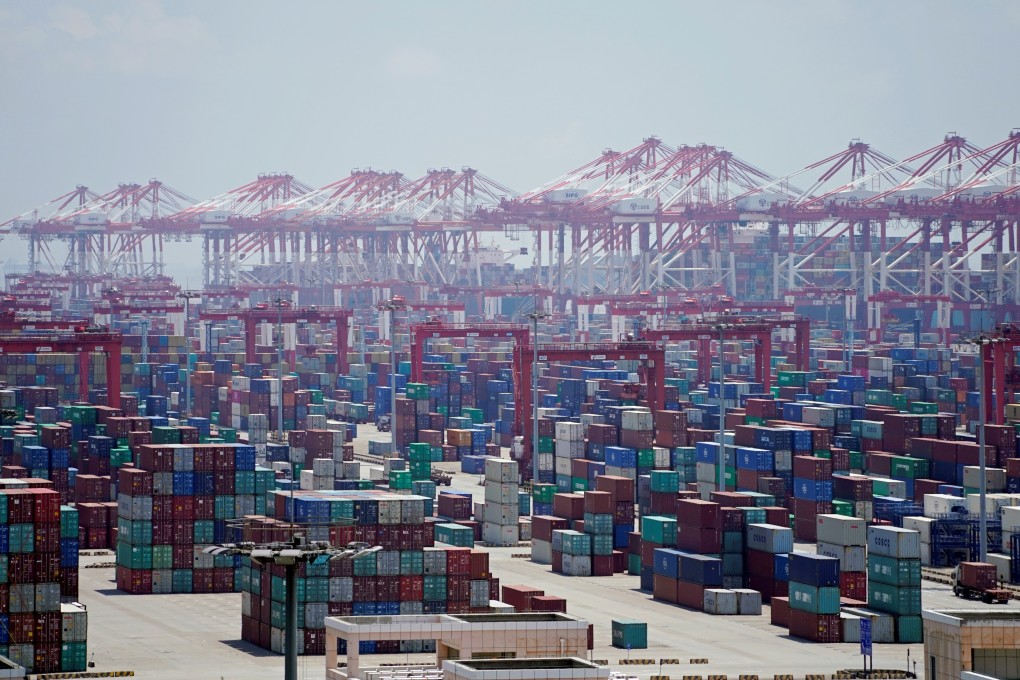Coronavirus: container traffic at China’s top eight ports plunges in early April as pandemic hits overseas orders
- China’s top eight ports, including Shenzhen, Shanghai, Ningbo, Guangzhou, Xiamen, Tianjin, Dalian and Qingdao, saw container traffic contract in early April
- In the second quarter, China’s port association forecasts a fall of between 10 to 15 per cent

Container traffic at China’s biggest ports fell for two weeks in a row in early April after a drop in overseas orders hit the nation’s exports, according to the China Ports and Harbours Association.
For the week starting April 6, the number of freight containers handled by China’s eight largest container ports in Shanghai, Ningbo, Shenzhen, Guangzhou, Qingdao, Tianjin, Xiamen and Dalian dropped by five per cent from a year earlier, the association said in its weekly update released on Wednesday.
Between March 30 and April 5, container traffic also fell 4.4 per cent from a week earlier, the first time the number dropped on a weekly basis since mid-February, the association said.
But because of the virus outbreak abroad, global logistics [companies] have slowed down operations and shipping firms have reduced their capacities
Ports that rely on export and container business, particularly those in southern China such as Guangzhou and Shenzhen, suffered the largest drop in traffic after overseas companies started cutting back orders and postponing the delivery of goods as stores closed in the United States and Europe following a surge in cases.